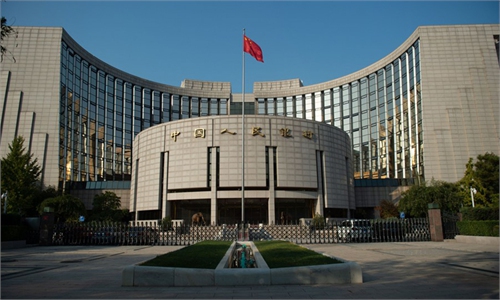
A prospective home buyer listens to an introduction in Dalian, Northeast China's Liaoning Province on September 25, 2023. Photo: VCG
With interest rates for existing mortgages for first-home purchases lowered starting from Monday, some 40 millions borrowers in China will enjoy the benefit of this support policy in the property sector. The move is expected to spur consumption and investment amid current economic headwinds, experts said.
The term "interest rates of existing mortgages for first-home purchases lowered from Monday" hit the hot searches on Chinese social media Weibo on Monday morning.
Most home buyers received text messages from banks or sought information on banks' apps. The reductions vary by the city, the time of purchase and the time when the credit contract was signed with the bank.
Mortgage interest rates in big cities are generally higher, and the total loan amounts are also higher. Buyers in such cities will see their payments fall more than those in smaller ones.
People who bought apartments in 2021, when mortgage policies were tightened and interest rates were relatively high, will more clearly feel the positive effects of rate cuts this time, according to Yan Yuejin, research director at Shanghai-based E-house China R&D Institute.
"The adjustment of mortgage rates could represent a significant innovation in housing policies. Market sentiment has been quite positive on the first day of the policy's implementation," Yan told the Global Times on Monday.
"Everyone is very supportive of the national policy, which has genuinely brought benefits to people, and their confidence in the real estate market has been further bolstered," Yan noted.
A house owner surnamed Bai, who bought a house in 2021 in Guangzhou, capital of South China's Guangdong Province, told the Global Times on Monday that he could save as much as 1,000 yuan ($136.8) per month after the adjustment.
Prior to the adjustment, Bai's mortgage rate was 120 basis points above the loan prime rates (LPR), a market-based benchmark lending rate. Now the rate is the same as the LPR, which is 4.3 percent, he was told by the bank.
"That will effectively reduce my monthly financial burden, which makes me very happy and more motivated to work harder and spend more to improve my living conditions," Bai said.
The move announced on Monday will help reduce borrowers' mortgage interest payments, stabilize and expand housing demand, and promote the sound and stable development of the country's real estate market, Dong Ximiao, chief research fellow at Merchants Union Consumer Finance Co, told the Global Times on Monday.
"It will also help narrow the interest rate gaps between existing mortgage loans and new loans, and ease the early mortgage payment rush," Dong said, adding that the risk from mortgage irregularities will also be diminished.
From a long-term view, these changes will later translate into consumption and willingness to invest, he noted.
The lowering of mortgage rates will benefit about 40 million borrowers. If the interest rate of a 1 million yuan mortgage for a 25-year term is cut from 5.1 percent to 4.3 percent, borrowers' interest payments will drop by over 5,000 yuan each year, according to analysts.
By the end of June, Chinese lenders held 38.6 trillion yuan in outstanding individual mortgage loans, statistics showed.
The support measures for the property sector echoed calls from the Political Bureau of the Communist Party of China Central Committee in July, which urged an adaption to a new situation, where major changes have taken place in the relationship between supply and demand in China's real estate market.
Over the past two months, Chinese authorities have launched measures ranging from lowering interest rates to easing restrictions on home purchases in a bid to bolster the stagnant property sector.
Last year was a tough one for the sector, with property investment falling 10 percent on a yearly basis, the first decline since records began in 1999.



